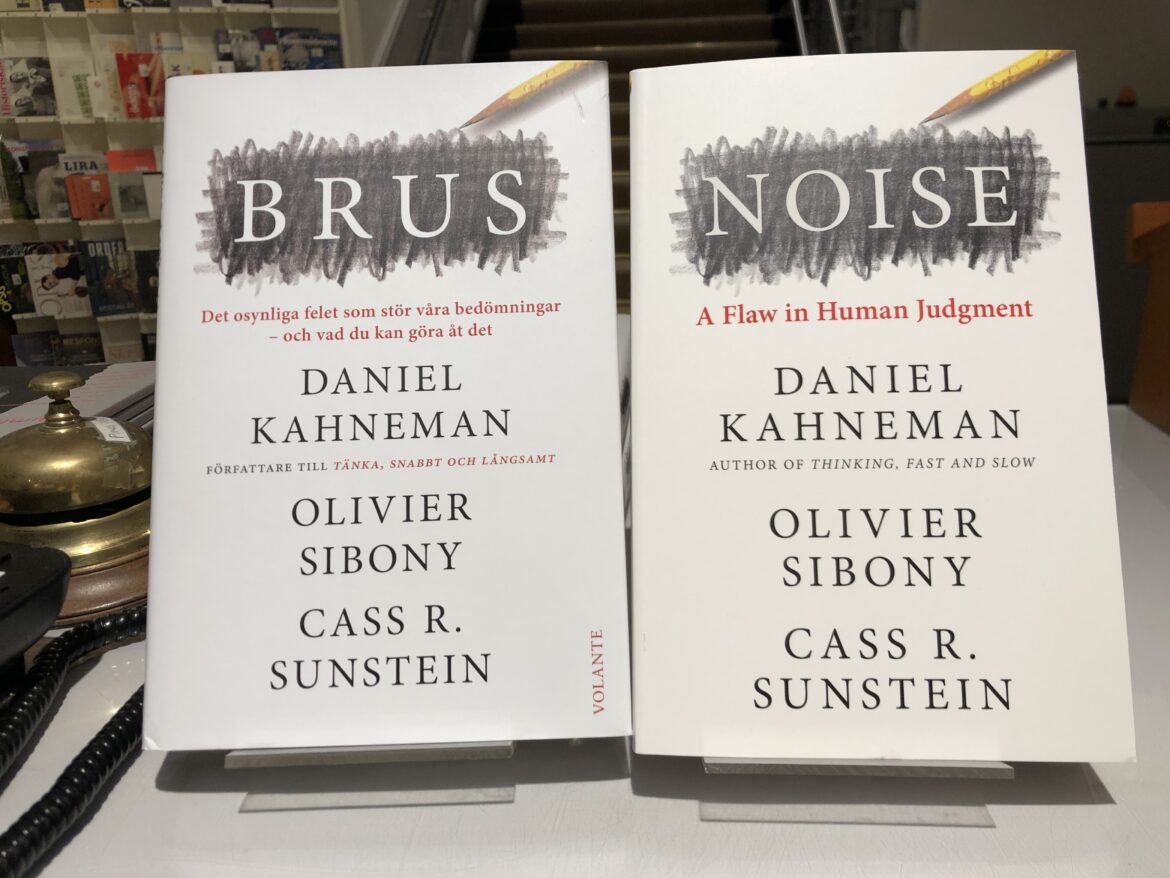

McKinsey: Did one system, function, or industry surprise you as being particularly noisy? So it’s worse to be a defendant on hot days. The sentences that judges hand down, for instance, can vary with the outside temperature. See the same problem under different conditions-the conditions shouldn’t matter, but they do. It happens, for instance, when people are presented with the same problem twice and they don’t recognize that it’s the same problem, so they give different answers. There can also be noise within an individual.

We found the same dynamics in medicine, with underwriters in insurance, and in many other functions. They should give the identical sentence in the identical case. The variability in those forecasts is the noise.ĭaniel Kahneman: The noise we’re talking about in the book is “system noise,” or unwanted variability within a system of judgments. The average error, whereby we underestimate the time, will be the bias in our forecast. But even though we’re all talking about the same kitchen, none of us will have the exact same estimate of how long the project will take. We can expect that all of us will be too optimistic all of us will underestimate the time it will take to finish the renovation.

Say we are planning how long it will take to redecorate our kitchen. Olivier Sibony: Here’s a forecasting example to make it more concrete. If you look at many judgments, and the errors in those judgments follow in many different directions, that is noise. By contrast, noise is the variability of error. If you look at many judgments, and errors in those judgments all follow in the same direction, that is bias. McKinsey: What differentiates noise from bias?ĭaniel Kahneman: Put simply, bias is the average error in judgments. When you don’t have the same answer to something where you’d want the same answer, that’s noise. There is a correct answer, and you would want these two people to have the same answer. That is a judgment where variability is not desirable. If two doctors give you two different diagnoses, at least one of them must be wrong. The obvious example would be a doctor’s diagnosis.
#Noise a flaw in human judgment professional
But not when it involves a professional judgment. The inclusion of “unwanted” in the definition is very important, because sometimes variability in judgments is not a problem sometimes it’s even desirable. Olivier Sibony: Noise is the unwanted variability in professional judgments. McKinsey: How do you both define “noise”? It is often something much more random, and when Danny started talking about noise, I realized that we were talking about the same thing. Olivier Sibony: In some of the work I was doing with companies to address the problem of bias, it struck me quite often that the effect of bias is not actually predictable, as we would normally assume. Given my age, we didn’t have 15 years to wait, so the book came out a bit early-it’s still green, not ripe, but that’s the best that we could do. The normal sequence would be, you have an idea, you spend 15 years researching, teaching, and living the topic. As to the question, “Why now?” I would say the book is, in a way, premature. So that became a topic of thinking and, ultimately, of the book. It’s something I hadn’t thought about earlier-neither had a lot of other people. But about seven years ago, I encountered another type of error, which is noise. What brought you to the topic of noise? And why now?ĭaniel Kahneman: I’ve been working on errors of judgment for most of my career, more than 50 years, and most of that time, I’ve been studying biases and how they lead to errors in judgment. McKinsey: You both have researched and written so much about decision making and cognitive biases. In this edited conversation with McKinsey’s Julia Sperling-Magro and Roberta Fusaro, Kahneman and Sibony explain what noise is, how it relates to bias, and what people can do about it. The concept is less well-known, in part because there has been much more research on bias than on noise-something Kahneman and Sibony are seeking to change with their recent book, Noise: A Flaw in Human Judgment (Hachette Book Group, May 2021), coauthored with Harvard professor Cass R.


 0 kommentar(er)
0 kommentar(er)
